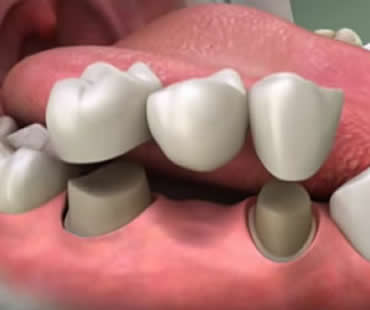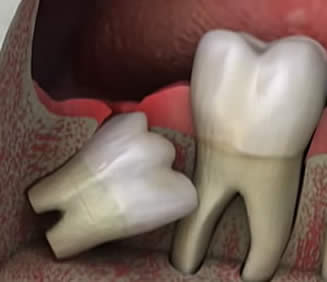
by Dr. Adkins | Jul 28, 2017 | Blog, Dental Topics, Uncategorized
Excellent dental care protects not only your oral health but also your general health. You may think brushing and flossing are enough to keep you safe from decay and disease, but routine care and examinations by a good general dentist are also an important and necessary part of taking care of your oral and general health.
A general dentist plays a vital role in identifying and treating minor problems before they become major ones. The primary focus of a general dentist is preventative care.
Several essential services provided by a general dentist include:
Detecting and treating potential problems early may mean the difference between losing and saving an infected tooth. Caught early, gingivitis or periodontitis can be stopped and treated before becoming more serious problems.
A general dentist can treat your entire family, from the youngest child to the more senior members. It is your general dentist’s responsibility to oversee the diagnosis, treatment and overall coordination of all your dental health needs. Should you require specialized oral care, your general dentist can work with specialty dentists to ensure you receive the best possible care.
To guarantee the longevity of your oral health, look to a qualified general dentist for excellent dental care. A regular schedule of exams and cleanings by your general dentist combined with proper at-home care will go a long way toward a lifetime of beautiful smiles.
We look forward to seeing you in our McDonough dental office

by Dr. Adkins | Jul 21, 2017 | Blog, Dental Topics, Uncategorized
Sometimes you experience symptoms in your mouth that cause you to wonder what’s going on and if you need to see a dentist. If you are thinking you might need root canal treatment, it’s time to see the dentist for an examination. Here are some common signs that you may need this treatment. Keep in mind, however, that you may or may not experience all of these symptoms.
Pain
One indicator that something is wrong is when a tooth causes pain. Sometimes pain may be severe, causing you to rush to the dentist. If the pain is sharp or intense, or even if it is a dull ache that lasts for several days, make a dental appointment as soon as possible. Remember that some teeth requiring root canal treatment don’t hurt at all, so regular checkups are important.
Swelling
An obvious sign of infection is swelling. If you notice your jaw or face is swollen, see your dentist. It doesn’t always mean root canal therapy is needed, but the dentist can advise you about the best way to treat the swelling and any infection.
Sensitivity
If you experience sensitivity when you consume anything that is hot or cold, it can be a sign that root canal treatment is necessary. Mild sensitivity can even be a sign, especially if the sensation occurs near a certain tooth each time.
Darkened tooth
Discoloration of a tooth can mean something unwanted is occurring within the tooth’s nerve space. Gray, dark yellow, or black are colors to look for and to consult your dentist if they appear. A tooth may also darken as a result of trauma or decay, so a professional examination is recommended to determine what’s causing the color change.
Gum boil
A gum boil is a lesion resembling a pimple that may appear on your gum tissue. It is often related to an infection inside the soft tissues of your mouth, and a boil results when pus accumulates. The lesion usually is tender and swelling can occur. See your dentist if you develop a gum boil, even if it comes and goes.
Schedule your appointment at our McDonough dental office

by Dr. Adkins | Jul 14, 2017 | Blog, Dental Topics, Uncategorized
Don’t put off choosing a general dentist until an emergency forces you to seek care from any dentist you can find. A better choice is to select the right dentist for you and your family who meets all your needs and to get established with regular checkups and consistent care.
When searching for a general dentist, here are some guidelines to help you through the process.
Services
Ask what procedures and treatments that the dentist offers. Make sure that the services you’re interested in are provided and that the dentist has experience in performing them. Typical services available through many general dentists include professional cleanings, X-rays, fillings, bonding, root canal treatment, teeth whitening, veneers, dental implants, and more.
Qualifications
Check to see that the dentist has the proper education and training to be practicing, as well as a valid license. Look for a dentist who pursues continuing education in order to maintain the latest and most efficient skills.
Location
You are more likely to keep your appointments if the dental office is located near your home or work. This makes stopping in for checkups easier with less impacts on your busy schedule.
Comfort
Personal comfort is one of the most important aspects of your dental visits. Not only should the office environment be comfortable and appealing, your interactions with the dentist and staff should also make you feel at ease. Look for professionals who listen to what you have to say and address all of your concerns. Nerves are a common part of dental visits for many people, so find a dentist who makes you feel relaxed and more likely to return for care.
Policies
Ask questions about various policies of the dental office such as hours, emergency care, financial responsibilities, insurance plans, and any other policies that might affect you.
If you need a dentist in McDonough, contact us today

by Dr. Adkins | Jul 7, 2017 | Blog, Dental Topics, Uncategorized
If you’re looking to improve both your oral health and your smile, a dental crown or a bridge may be recommended. They both improve the functionality and appearance of teeth, providing many health and cosmetic benefits to patients.
What are crowns?
These are basically caps that are placed over existing teeth. They restore the size, shape and strength of your tooth and make it look natural and appealing in your smile. Crowns can be made of various materials including ceramic, resin, plastic, stainless steel or metal alloys. A combination of materials may even be used to achieve ideal strength and appearance.
When are crowns recommended?
There are a number of reasons that dentists install crowns. They may protect a weak tooth, save a cracked tooth, restore a worn or broken tooth, hide a badly discolored or crooked tooth, hold a bridge, cover an implant, or aid in completing a cosmetic dental procedure.
What does the crown procedure involve?
A crown installation typically requires three dental visits. Initially, the dentist examines the tooth to advise the best material. On the second visit, the tooth is prepared and an impression is made for creating the crown in a dental lab, and a temporary crown is placed. The final visit involves replacing the temporary crown with the final one.
What are bridges?
These restorations consist of two crowns that are joined together by a tooth. Bridges replace missing teeth by relying on adjacent teeth for support. They are made out of the same types of materials as crowns.
When are bridges recommended?
Bridges are most often a solution for replacing a few teeth, especially on just one side of the mouth. They are only successful when neighboring teeth are strong and offer excellent bone support.
What is the bridge procedure?
While two crowns and a missing tooth are fabricated in a dental lab, teeth adjacent to the gap are trimmed and prepared for crowns. When the restoration is ready, the pieces will be joined in the mouth to create a bridge to be held in place by the crowns on both sides of the artificial tooth.
We treat patients from McDonough and the surrounding area

by Dr. Adkins | Jun 28, 2017 | Blog, Dental Topics, Uncategorized
Dentures dentist in McDonough
Your dentist may suggest dentures when you are missing teeth. There are two main types of dentures available: complete or partial. As their names suggest, complete dentures are appropriate when all teeth are gone and partial dentures when some real teeth are still in the mouth.
Complete dentures
There are two kinds of complete dentures that your dentist may offer. Conventional dentures are ready to be placed up to twelve weeks after your teeth have been removed and the gums have begun healing. You will be without teeth during that time until the conventional dentures are ready. Immediate dentures are prepared prior to the teeth being removed so that they can be worn as soon as teeth are gone. Because gums and bones may change during the healing period, immediate dentures require more adjustments to ensure proper fit throughout the process. Some dentists consider immediate dentures as a temporary restoration until conventional dentures are ready.
Partial dentures
Typically consisting of artificial teeth attached to a pink-colored plastic base and sometimes connected with a metal framework, partial dentures are used when one or more real teeth are still in position. These can be used as a partial tooth replacement solution for either the upper or lower jaw. If the restoration is cemented into position, it’s called a fixed bridge. This option may be used to replace one or more missing teeth by implementing crowns on the teeth adjacent to the space and attaching artificial teeth. Since partial dentures fill in spaces left by missing teeth, one of the benefits is that your remaining teeth don’t move out of place.
Wearing dentures
You might feel awkward at first, whether you’re wearing complete or partial dentures. It takes a few weeks to adjust to eating and speaking. If any gum tenderness doesn’t resolve quickly or becomes severe, contact your dentist. It is normal for your complete or partial dentures to need to be relined or remade as time progresses, or sometimes only the base needs to be remade. Regular dental checkups are important to maintain high-quality dentures and good oral health.
Schedule your appointment at our McDonough dental office

by Dr. Adkins | Jun 21, 2017 | Blog, Dental Topics, Uncategorized
Dentist in McDonough that treats wisdom teeth
Wisdom teeth, your third set of molars, are named that because they are the final teeth to erupt. They usually come in between ages 17 to 25, and are located in the very back of your mouth on the top and bottom. Your dentist will examine you to find out if your wisdom teeth are properly positioned and healthy. If they aren’t, your dentist will recommend removal.
How do you know wisdom teeth should be removed?
Some of the signs there is a problem with your wisdom teeth include pain, infection, cysts, gum disease, damage to nearby teeth, and tooth decay. If you experience any of these symptoms, see your dentist for an examination.
What are impacted wisdom teeth?
Sometimes your teeth just don’t have room to grow in properly. They can erupt at angles within your jaw, sometimes even horizontally. If wisdom teeth aren’t able to erupt normally they can become trapped, or impacted, inside your jaw. Symptoms of impacted wisdom teeth are pain, infection, and swelling. When teeth are impacted, they can lead to serious problems. Many dentists want to avoid impacted teeth and therefore remove your wisdom teeth before they erupt or grow too big.
Are there less obvious reasons to remove wisdom teeth?
It’s not always clear when these teeth way in the back of your mouth are causing problems, or might in the future. Many dentists remove them in teens or young adults so they don’t cause problems later, or become too firmly planted in the jaw. Also, sometimes wisdom teeth are removed as part of orthodontic, periodontal, or restorative treatment plans.
What happens if I don’t have them removed?
Some dentists prefer to wait and see what happens with time to your wisdom teeth. Make sure you continue to have these teeth monitored, because the risk of problems doesn’t go away with age. Removing wisdom teeth isn’t always necessary, because if there’s room in your mouth and they come in properly, they work just like any other teeth. The key is to watch them to make sure problems don’t arise in the future.
We treat patients from McDonough and the surrounding area








 770-957-5214
770-957-5214  E-Mail Us
E-Mail Us 
